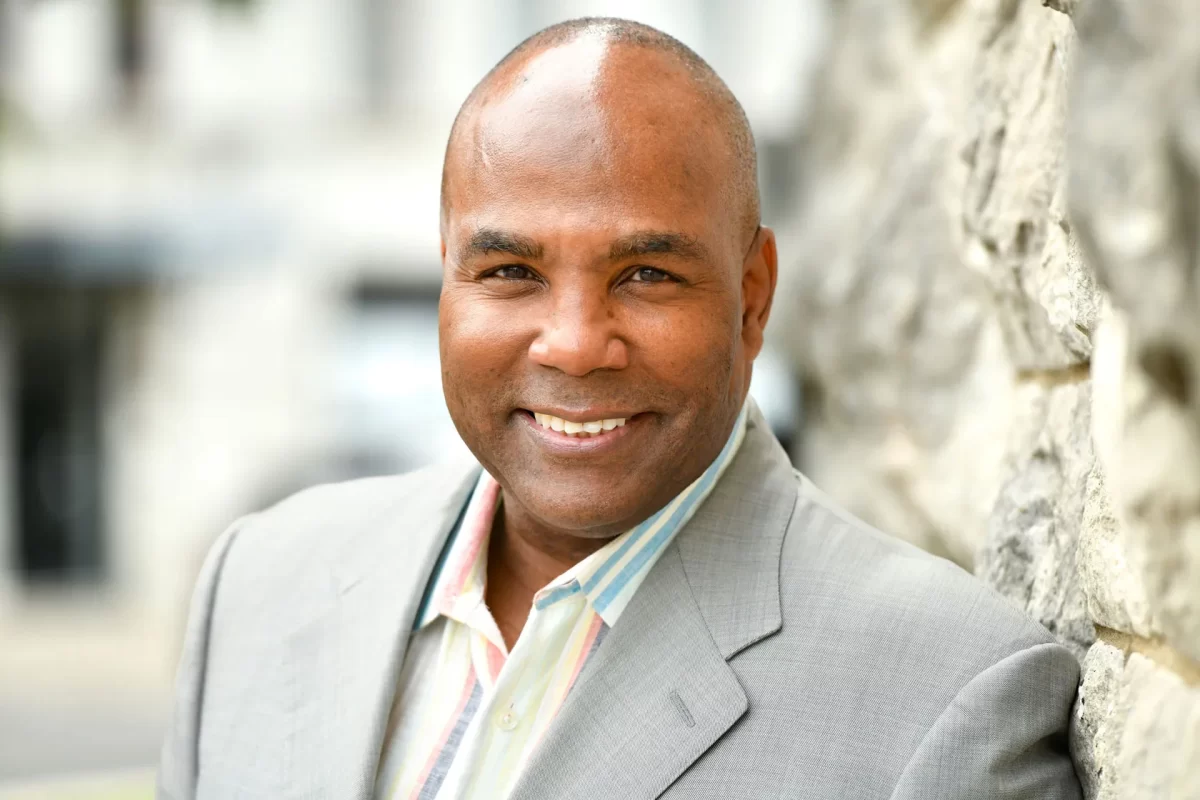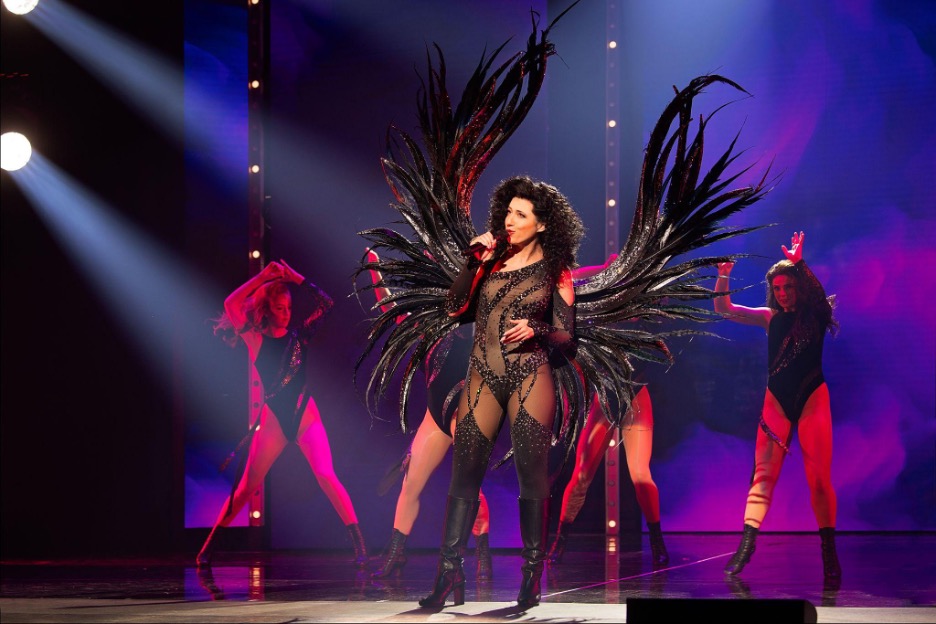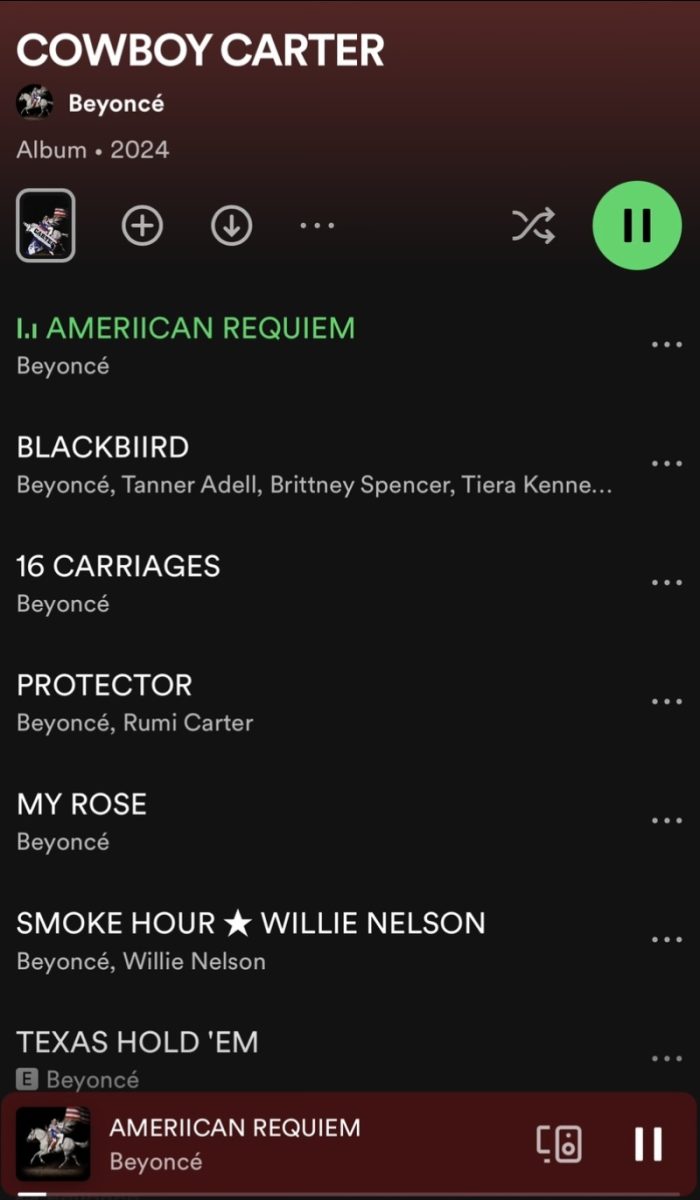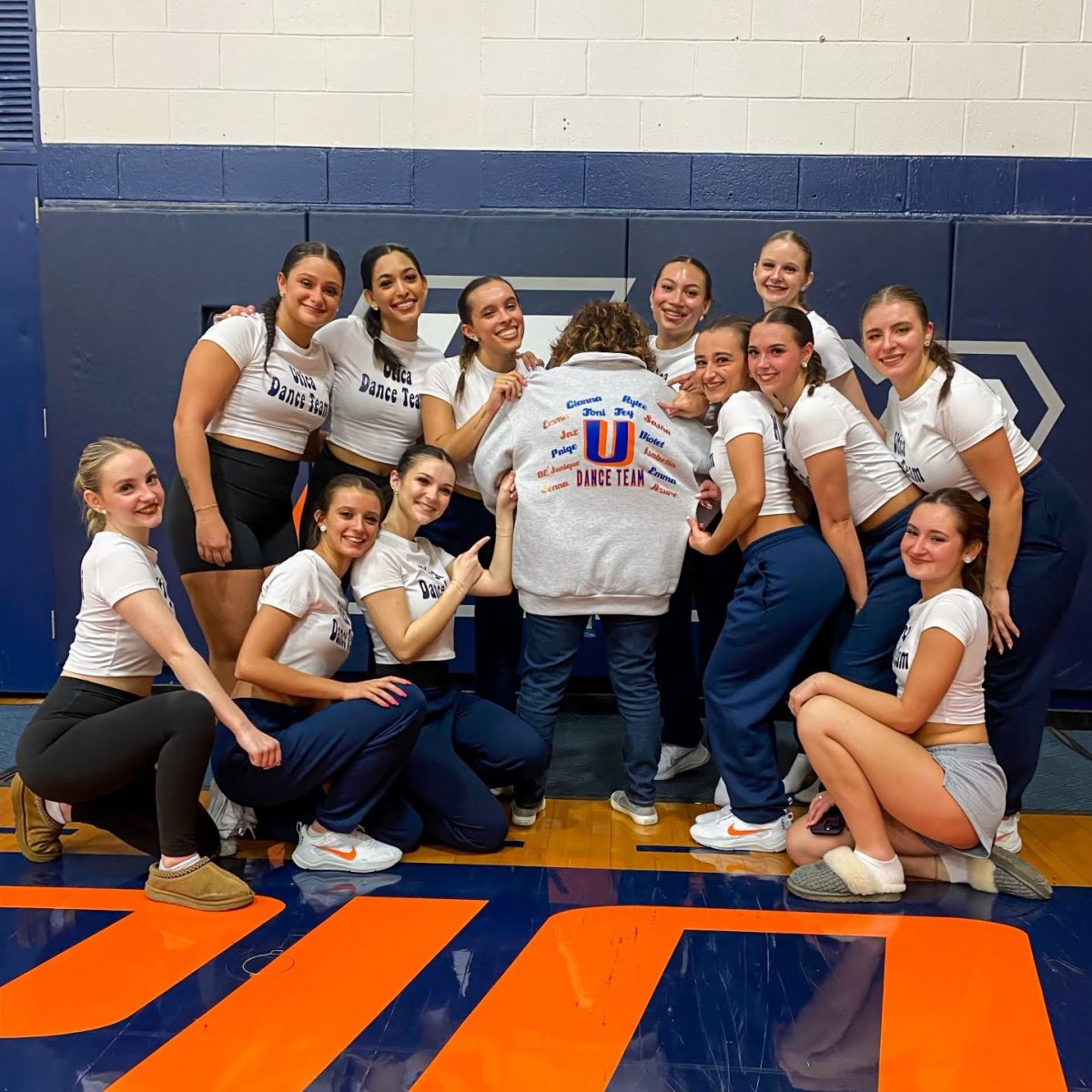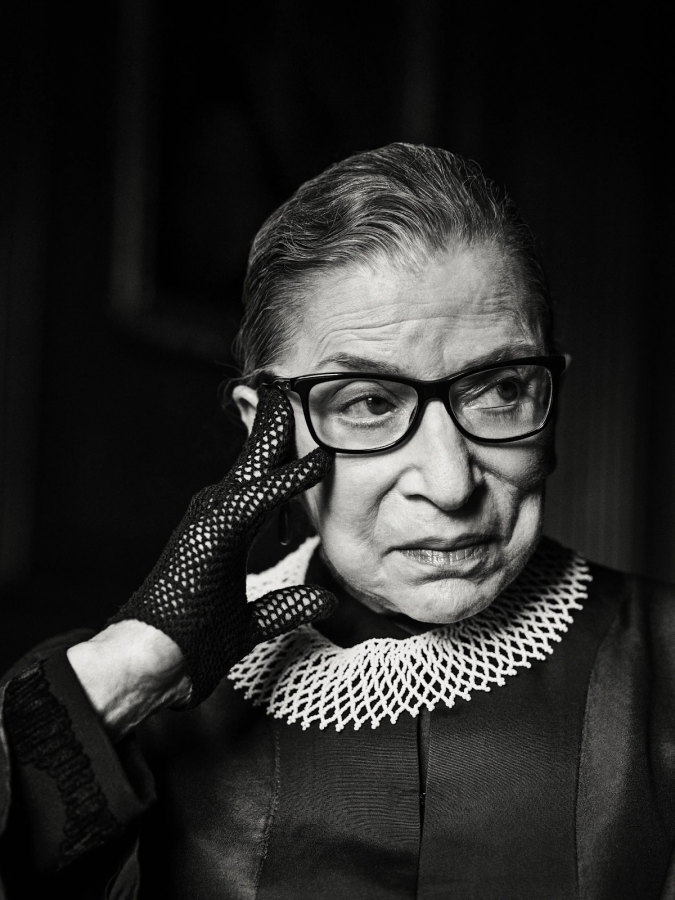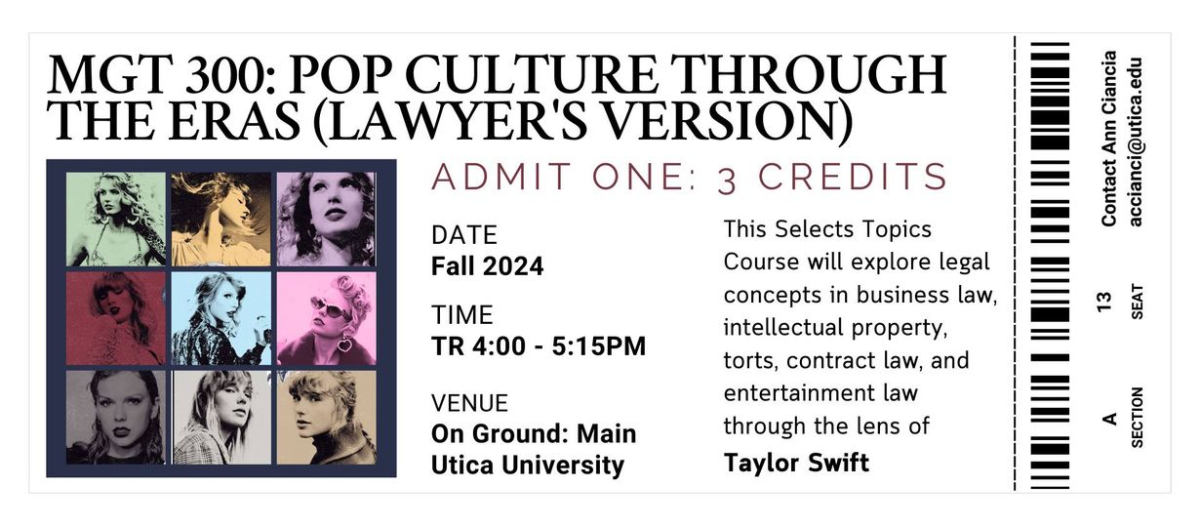Ruth Bader Ginsburg, famed Supreme Court Associate Justice, notable advocate for women’s rights and a reigning figure in Washington, passed away last week on Sept. 18 following complications from an ongoing battle with pancreatic cancer. She was 87 years old.
Brooklyn-born Ginsburg displayed her advanced knowledge for law early on in her education, which landed her in a handful of renowned educational institutions following her high school graduation. Despite her strengths, she faced oppression from others due to the fact that she was a female in a male-dominated field. Specifically, Ginsburg was one out of nine women in a class of 500 men during her final year at Harvard Law School.
“As a young woman in law school, she had to fight against entrenched misogyny just to get by,” Associate Professor of Political Science at Utica College Daniel Tagliarina said. “Despite that, she was the first woman to work on the Harvard Law Review, and after transferring to Columbia Law for her last year, she graduated first in her class. She would go on to be the first woman to be a tenured law professor at Columbia.”
Ginsburg’s professional career did not start out without struggle. She found it difficult to find a job, simply because most firms at the time were not willing to hire a female. Nevertheless, she persisted.
In 1972, Ginsburg founded the Women’s Rights Project at the American Civil Liberties Union. After years of persecution due to her gender, this is where Ginsburg started her long battle for gender equality.
“Here she took part in 34 different Supreme Court cases, arguing six of them herself,” Tagliarina said. “These cases took on laws that discriminated – against both men and women – on the basis of sex and gender. This was at a time when the law allowed many different laws that legally treated men and women differently. RBG is a large part of how and why that changed.”
Ginsburg continued to fight for equal opportunities and build up her name as an advocate for gender fairness. In 1993, President Bill Clinton nominated Ginsburg as Associate Justice of the Supreme Court, a seat that was previously filled by a man. She became the second woman and the first Jewish woman to become a justice.
“Once she got to the Supreme Court, she continued this fight for the rights of those who have been marginalized, including repeatedly calling out attempts at voter disenfranchisement,” Tagliarina said. “She pointed out in her opinions, including often in dissent near the end of her career, the many ways in which our system can be one of inclusion that offers rights and protections for all. She was an absolute essential figure in many of these rights-based struggles.”
As her career in the Supreme Court took off, she began to build herself as a feminist icon, as well as a prominent pop-culture figure. From appearances on late-night television shows to a documentary made about her career, Ginsburg developed the nickname ‘Notorious RBG’ by the media.
“In many ways, the Notorious RBG label was always a bit of an awkward fit,” Tagliarina said. “By all accounts, she was a fairly reserved person who never really sought the spotlight. However, in many other ways, it is completely appropriate. When you step back and look at her accomplishments, we see she clearly had drive, determination, and could not stand systems that discriminated against people.”
From abortion rights to her views on mental illness to the battles she fought to help protect indigenious peoples, Ginsburg’s list of accomplishments is a long one, to say the least.
“It is written in the language of her majority opinion in U.S. v. Virginia (1996) that argued that the Virginia Military Institute had to admit women,” Tagliarina said. “It was also on display in her dissent in Shelby County v. Holder (2013) where in incredibly strong language she called out the Court’s decision to get the Voting Rights Act, which was one of the most important victories of the Civil Rights movement. It was this specific dissent that earned her the Notorious RBG moniker, which is something she laughingly accepted and leaned in to (once she found out about it).”
As the saying goes, all good things must come to an end. After nearly 20 years of health complications coming and going and occasionally knocking her down, Ginsburg no longer had the strength to fight another battle and died from pancreatic cancer.
Ginsburg is the first ever woman and first Jewish individual to lay in state at the Capitol. She was buried next to her husband on Sept. 29 at Arlington National Cemetery.
With her seat in the Supreme Court now vacant, the question remains of who should replace her. While the idea of filling it with another woman has become a hot topic, Tagliarina feels that it should go to someone who is qualified for the job and that the decision should not be based on sex, which is what Ginsburg was against in the first place.
“RBG was frequently asked how many would be enough women on the Court, as we gradually saw a few others added to the Court (there have still only been 4 women, and 2 of them are there now),” Tagliarina said. “Without fail, RBG’s answer was always ‘when there is 9,’ explaining that for most of U.S. history the Court was all men, and if all men were fine, all women should be fine too. I think that the next Supreme Court justice should be someone who is qualified to be there. Being a woman alone does not make one qualified. However, given RBG’s legacy, and given that the Court is still heavily tilted towards men, I think it would be important to fully consider the large number of qualified women who can fill that spot.”
Filling the spot of someone as infamous as Ginsburg will be a difficult feat for whomever the nomination goes to. Although she has passed, it is important to remember the legacy she left behind and the accomplishments she made to make our society the way it is today.
“RBG was an amazing person,” Tagliarina said. “I think she represented the best of what our constitutional system could be if we took our claims seriously regarding equality and inclusion.”

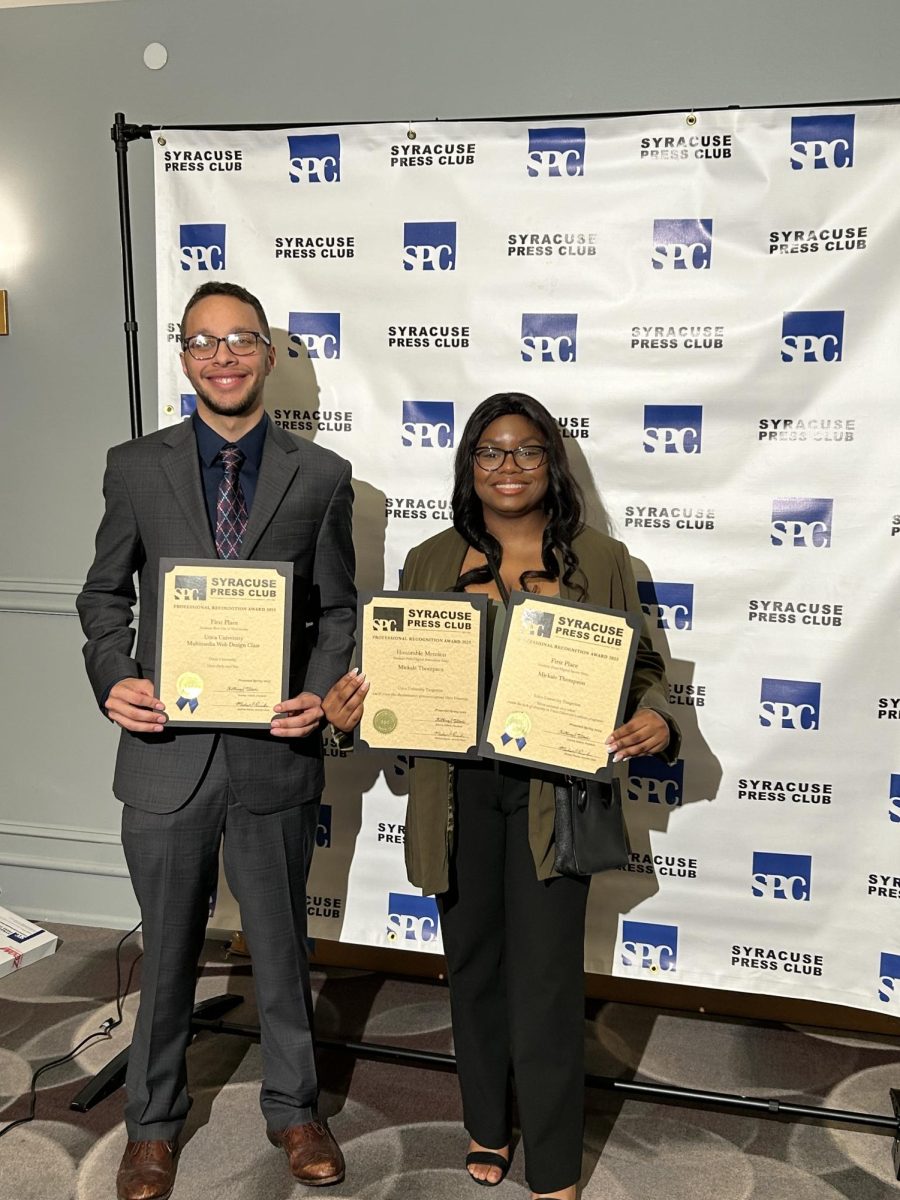
















![President Todd Pfannestiel poses with Jeremy Thurston chairperson Board of Trustees [left] and former chairperson Robert Brvenik [right] after accepting the universitys institutional charter.](https://uticatangerine.com/wp-content/uploads/2023/10/unnamed.jpeg)




